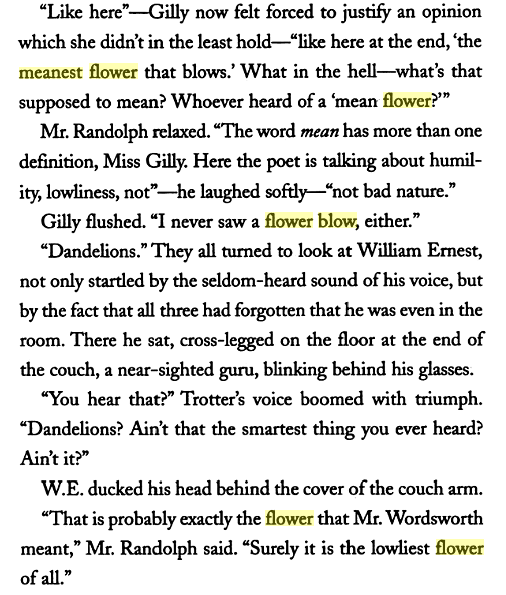A beautiful woman risking everything for a mad passion. A few wild weeks of happiness cut short by a hideous, treacherous crime. Months of voiceless agony, and then a child born in pain. The mother snatched away by death, the boy left to solitude and the tyranny of an old and loveless man. Yes; it was an interesting background. It posed the lad, made him more perfect, as it were. Behind every exquisite thing that existed, there was something tragic. Worlds had to be in travail, that the meanest flower might blow....
The above is an excerpt from The Picture of Dorian Gray. I am not understanding the meaning of the phrase "the meanest flower might blow".

